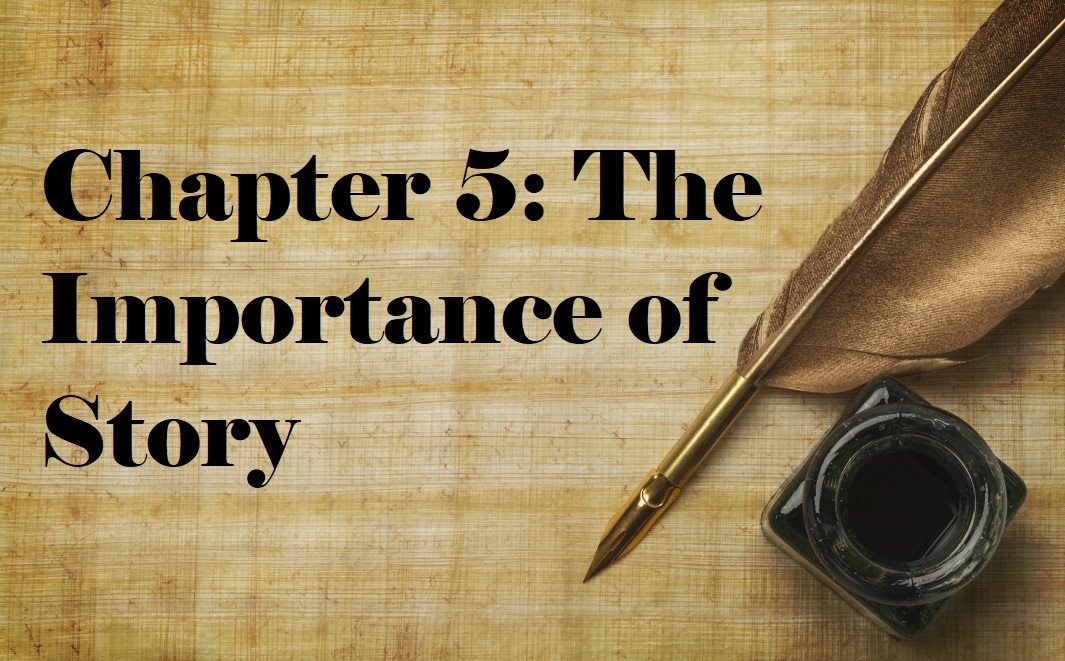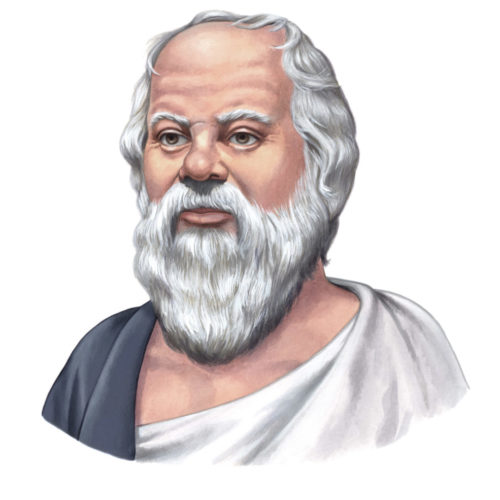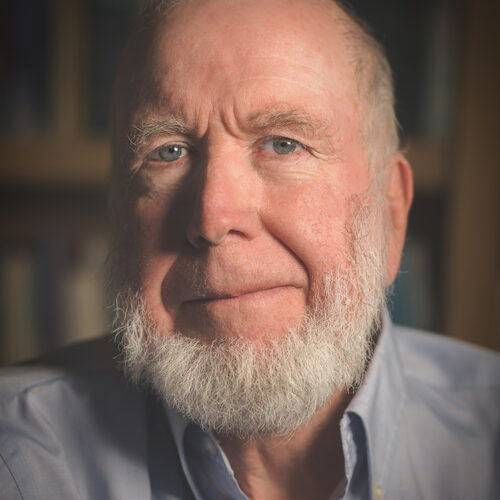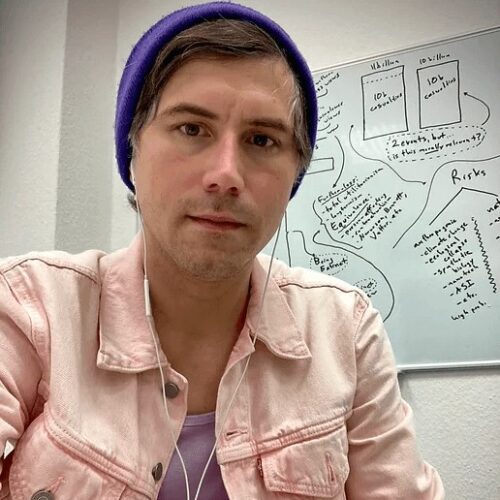Chapter 5: The Importance of Story
Socrates / Podcasts, ReWriting the Human Story
Posted on: May 23, 2021 / Last Modified: May 29, 2021
Podcast: Play in new window | Download | Embed
Subscribe: RSS

ReWriting the Human Story: How Our Story Determines Our Future
an alternative thought experiment by Nikola Danaylov
Chapter 5: The Importance of Story
It’s like everyone tells a story about themselves inside their own head. Always. All the time. That story makes you what you are. We build ourselves out of that story. Patrick Rothfuss
Stories are not just stories. Stories matter. Because, to paraphrase Friedrich Nietzsche, if one has a sufficiently strong “why” one can endure any “how.” And the “why” comes not from facts or events. It comes from the story we attach to them. This desire for meaning is often stronger than our desire for survival because meaning provides motivation or indifference, even apathy. That’s how important story is.
For example, if one is suffering greatly one can decide that it is meaningless to go on and give up on life. Or, like Viktor Frankl, one can choose a story that attaches positive meaning to their suffering and thus be motivated to endure even the living hell of Auschwitz. This is true for individuals as well as larger groups of people, such as corporations, religions, or nations. As Frankl said:
Between stimulus and response there is a space. In that space is our power to choose our response. In our response lies our growth and our freedom.
In other words, we are free to choose our story even when we are not free to choose our circumstances. Because the story is our “why” while the circumstances are merely our “how.” And the story is what ultimately makes the difference. Because a story is something that helps us feel connected to a reason and, more importantly, to a purpose. Let’s look at some examples at both the individual and the collective level.
The Japanese island of Okinawa is home to some of the longest-living people in the world. One often-quoted reason behind Okinawan longevity is their concept of Ikigai. Ikigai comes from 2 words: iki – which means “to live,” and gai – which means “a reason.” So, literally, ikigai translates as a “reason to live”, “something that makes life worth living”, “a meaning for/to life”. Furthermore, Ikigai is pretty close to the French concept of raison d’etre. It is a sense of a personal mission and it is commonly believed that if one loses their Ikigai one dies. [A claim strongly supported by Victor Frankl’s own observations in Nazi concentration camps. See Man’s Search for Meaning]
Every great leader has a great story. For example, if you’re Socrates your story is: “I know that I don’t know.” If you are Buddha your story is “life is suffering”. If you are Mohamed your story is “there is only one God and his name is Allah.” If you are Martin Luther your story is “reformation.” If you’re Galileo your story is “And yet it moves.” If you’re Martin Luther King Jr. your story is “I have a dream”. If you’re the Beatles your story is “all you need is love”. If you are John Lennon your story is “Imagine all the people”. If you’re President Kennedy your story is “We shall put a man on the moon”. If you’re Steve Jobs your story is “think different”. If you’re President Bill Clinton your story is “It’s the economy, stupid.” If you’re President Obama your story is “Yes, we can.” If you are President Trump your story is “Let’s make America great again.”
In the case of larger groups of people – such as corporations, story is the glue that brings everyone together and motivates them to cooperate and overcome obstacles. And so, in the past couple of decades, the most successful organizations have come up with what’s been called a Massively Transformative Purpose [MTP]. [Salim Ismail, Exponential Organizations, page 53]
An MTP is the distilled essence of a story that captures who this organization is for and what’s its mission or purpose. For example, Google’s MTP is “organize the world’s information.” TED’s MTP is “ideas worth spreading.” Deep Mind’s MTP is “Solve intelligence. [Use it to make the world a better place.]” Calico’s MTP is “solve death.” Mark Zuckerberg’s foundation MTP is “cure all disease.” Doctors Without Borders’ MTP is “medical aid where it is needed most.” Elon Musk’s MTP for Tesla and SolarCity is to “accelerate the world’s transition to sustainable energy” while for SpaceX it is to “backup the biosphere by making humanity a multiplanet species.” Patagonia’s MTP is “We’re in business to save our home planet.” Lego’s MTP is “Inspire and develop the builders of tomorrow.” [Having an MTP is particularly important for Millennials for whom the story of money is often not a sufficient “why.”]
Larger groupings of people such as religions and nations also utilize the power of story to forge their respective religious or national identity. Thus Judaism, Christianity, Islam, and Hinduism all tell their own mythical stories. And the more we believe in those stories, the more we identify ourselves as Jewish, Christian, Muslim or Hindu. But nations or ideologies such as Liberalism, Humanism, Feminism, Communism and Capitalism do it too. So, a Japanese identifies with the story that Japan – Nippon, is the “land of the rising Sun”. [Or “the land of the Gods.”] An American identifies with the story of “the land of opportunity” where everyone is free to pursue the “American dream.” A Chinese may identify with the story of Tianxia – or “all under heaven.” A communist may identify with the story of equality or “to each according to their need.” A capitalist may identify with the story of personal freedom, the “invisible hand” of the “free market” and the “virtue of selfishness.” A humanist may identify with the story that “man is the measure of all things” since humanity is “the pinnacle of evolution” and “the supreme intelligence” on our planet. Each of those levels requires a story in order to create, inform and guide the identities of its respective constituents. As Lisa Cron notes:
Story, as it turns out, was crucial to our evolution — more so than opposable thumbs. Opposable thumbs let us hang on; story told us what to hang on to.








